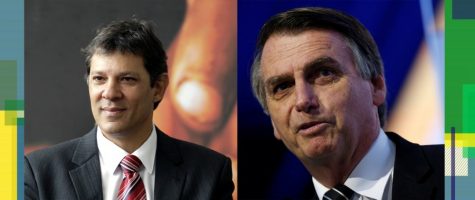Brazilian election spells trouble for global politics

Jair Bolsonaro spent most of the last 30 years in the Brazilian Chamber of Deputies screaming at anyone who will listen about his hatred for LGBTQ+ people and ethnic minority groups. His primary complaint regarding the military dictatorship which ruled Brazil from 1964-85 was that it didn’t kill enough people. He supports massive development and logging projects in the Amazon rainforest which violate the United Nations’ regulations and will likely lead to the massacre of indigenous peoples living there, in addition to releasing an enormous amount of carbon into the atmosphere.
Collectively, these factors make the election of Bolsonaro to the Brazilian presidency a genuine crisis for Brazil and the world. This crisis is deepened by the wave of down-ballot victories for candidates who represent his misnamed Social Liberal Party,
By any measure, Brazil’s political situation is complex. In the run-off election, Bolsonaro defeated Fernando Haddad, a center-left politician who was tapped to take the place of the original PT candidate, Lula da Silva. Da Silva began his run from prison, where he is still being held for politically motivated charges of corruption, until he was ruled ineligible for office.
In what can only be described as a pure coincidence, Sergio Moro, the outspoken judge who originally sent Da Silva to prison, just this week accepted the position of Minister of Justice and Public Security in President-elect Bolsonaro’s government.
The reasons for the profound discontentment felt by the voters who gave Bolsonaro an 11-point victory in the runoff are vast and complicated. Put simply, many Brazilians feel a deep dissatisfaction with those whom they consider to be part of the political establishment. Sky-high murder rates and a lengthy economic recession have driven many Brazilians to seek a drastic solution. Unfortunately, PT, which had held the presidency from Da Silva’s election in 2003 until the suspect impeachment of Dilma Rousseff in 2016, bore the brunt of this blowback, in no small part due to the country’s influential right-wing news apparatus.
How did we get to this crisis point? Despite the current crises Brazil faces, PT is, all things considered, largely a victim of its own success. Ambitious public investment in education, housing, public health and the Bolsa Familia aid program for families in poverty have vastly improved the standard of living for the most vulnerable classes of Brazilian society. Daring to challenge deeply-entrenched systems of economic power has its costs.
Above all else, it is vital to recognize the complicity of many major corporations and financial interests in Bolosonaro’s win. This trend ties Brazil’s bought of radical-right politics to similar movements across Europe and North America.
This should hardly surprise us, however, as these representatives of the economic elite have consistently made their peace with authoritarians in their single-minded pursuit of material interests.
Take, for example, that hallmark of the American establishment, the Wall Street Journal. Like many foreign entities, WSJ has maintained a record of writing apologetic after apologetic for the former Chilean dictator Augusto Pinochet. As dictator, Pinochet murdered Chile’s democratically-elected president, Salvador Allende, in a U.S.-backed coup. Pinochet waged a campaign of terror against his own people for two decades as he implemented deeply unpopular marketization of the Chilean economy. Just the same, WSJ’s editorial board saw fit to endorse Bolsonaro for Brazil’s presidency, red-baiting the Worker’s Party, which has consistently moderated its democratic socialist origins, in the process.
Though the problem is easily identified, it is much more difficult to address. There are few certainties in life, but you can count on the vastly wealthy to side with whatever political faction they think most likely to maintain their own political dominance. If that faction happens to be fundamentally opposed to democracy and promises to suppress irksome leftists and trade unionists – as Bolsonaro said he will do – even better.
Brazil’s history is unique, but the basic pattern of parties implementing moderate social democratic reforms in an attempt to relieve the suffering of the great mass of people and then either being overthrown in coups or, in the present case, likely being subject to state repression, is a familiar one, particularly in Latin America.
There is only one solution, and it is one that actually would have been self-evident* to Lincoln’s Republican party in 1860, when one of its unofficial campaign slogans was “Capital shall not own us!”
We have to cut the head off the snake. The vast concentrations of capital – and therefore control over major news outlets, multinational corporations employing millions of workers and untold billions of dollars of dark money pouring into elections – must be challenged and replaced with a fair and egalitarian distribution of resources that grants every person the right to the basic goods they need to live a dignified life. The alternative is much uglier – a never-ending cycle of reform followed by resurgence of capital led by reactionary goons like Bolsonaro.
Your donation will support the student journalists of Tulane University. Your contribution will allow us to purchase equipment and cover our annual website hosting costs.




Leave a Comment